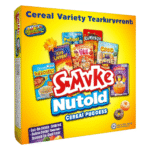Support our educational content for free when you purchase through links on our site. Learn more
What Is the Number 1 Leading Brand? Top Contenders in 2025 👑

Ever wondered which brand truly wears the crown as the number 1 leading brand in the world? It’s a question that sparks debates in boardrooms, marketing circles, and even casual conversations. But here’s the twist: the answer isn’t as straightforward as you might think. Is it the tech giant that revolutionized how we communicate? The luxury powerhouse that defines exclusivity? Or the consumer staple that’s been a cultural icon for over a century?
In this article, we unravel the mystery behind brand leadership by diving into the latest 2025 global rankings, exploring what it really means to be “number 1,” and revealing the titans battling for the top spot. Spoiler alert: Apple currently leads the pack, but the race is fierce and multifaceted. Ready to discover who’s dominating the brand universe and why it matters to you? Let’s dive in!
Key Takeaways
- “Number 1 leading brand” depends on multiple factors: financial strength, consumer loyalty, innovation, global reach, and ethical reputation.
- Apple holds the crown in 2025, thanks to its unmatched ecosystem, innovation, and emotional connection with consumers worldwide.
- Other top contenders include Amazon, Google, Microsoft, Tesla, and Coca-Cola, each excelling in different domains.
- Brand leadership is dynamic—today’s champion must keep evolving or risk losing relevance.
- Understanding brand leadership helps you make smarter choices as a consumer and business professional.
👉 Shop top brands and categories:
- Apple Products: Amazon | Apple Official Website
- Nike Athletic Clothing: Amazon | Nike Official Website
- Tesla Vehicles: Tesla Official Website
- Luxury Brands (Louis Vuitton, Hermès): Louis Vuitton Official Website
Table of Contents
- ⚡️ Quick Tips and Facts: Unpacking the “Number 1” Brand Mystery
- 🕰️ The Ever-Evolving Quest for Brand Supremacy: A Historical Look at Brand Leadership
- 🎯 What Does “Number 1 Leading Brand” Even Mean? Our Criteria for Brand Dominance
- Financial Prowess: Market Capitalization & Revenue Generation
- Brand Value & Equity: The Intangible Asset
- Consumer Connection: Loyalty, Trust, and Emotional Resonance
- Innovation & Adaptability: Shaping the Future
- Global Reach & Cultural Impact: Beyond Borders
- Reputation & Responsibility: The Ethical Imperative
- 🏆 The Reigning Titans: Who’s Consistently Vying for the Top Spot?
- Tech Giants: Apple, Microsoft, Amazon, Google – The Digital Dominators
- Automotive Innovators: Toyota, Mercedes-Benz, BMW, Tesla – Driving the Future
- Consumer & Lifestyle Icons: Coca-Cola, McDonald’s, Nike – Everyday Essentials, Global Reach
- Luxury Powerhouses: Louis Vuitton, Hermès, Chanel – Exclusivity and Heritage
- Enterprise & Software Leaders: Cisco, Adobe, Oracle, IBM, SAP – The Backbone of Business
- Media, Entertainment & Social Platforms: Disney, Instagram, YouTube, Facebook – Capturing Hearts and Minds
- Emerging Challengers & Niche Leaders: Samsung, J.P. Morgan, Pandora – Diversifying the Top Tier
- 📊 Decoding the Data: How Global Brand Valuation Reports Crown Their Champions
- 💖 Beyond the Balance Sheet: The Intangible Power of a Truly Leading Brand
- 🌪️ The Shifting Sands of Brand Leadership: Why Yesterday’s King Might Be Today’s Challenger
- 🤔 Why Should YOU Care About the “Number 1” Brand? Consumer Insights & Smart Choices
- 💡 Our Verdict: The Popular Brands™ Take on the Ultimate Brand Leader
- ✨ Conclusion: The Ever-Elusive Crown of Brand Leadership
- 🔗 Recommended Links for the Brand Enthusiast
- 📚 Reference Links: Our Sources for Brand Insights
⚡️ Quick Tips and Facts: Unpacking the “Number 1” Brand Mystery
Welcome to the thrilling rollercoaster ride of discovering what the number 1 leading brand really means! Spoiler alert: it’s not as simple as slapping a crown on the richest or most famous company. At Popular Brands™, we’ve dug deep into the data, consumer vibes, and brand wizardry to bring you the essentials:
- “Number 1 brand” varies by criteria: market value, consumer loyalty, innovation, or cultural impact.
- Apple consistently tops global brand rankings by Interbrand, Brand Finance, and Kantar.
- Brand value is a blend of tangible financials and intangible emotional connections.
- Tech giants dominate, but luxury, automotive, and consumer staples also fight for the crown.
- Brand rankings evolve yearly—today’s champ might be tomorrow’s challenger.
Curious about how we measure this elusive title? Hang tight, because we’re about to break down the secret sauce behind brand leadership! Meanwhile, if you want a head start, check out our related deep dive on The 15 Most Valuable Brands in the World (2025) 🌍💰.
🕰️ The Ever-Evolving Quest for Brand Supremacy: A Historical Look at Brand Leadership
Brands are like living organisms—they grow, evolve, sometimes fade away. The journey to being “number 1” is a saga spanning decades. Here’s a quick flashback:
- Early 2000s: Coca-Cola was the undisputed king, symbolizing global brand power with a value north of $70 billion (Interbrand 2000).
- Late 2000s to early 2010s: Google surged ahead, dominating digital innovation and consumer mindshare.
- 2011 onwards: Apple took the throne, fueled by iPhones, iPads, and an ecosystem that hooked billions.
- Recent years: Amazon and Microsoft have surged, reflecting the digital economy’s expansion.
The Interbrand Best Global Brands report reveals that only 35 brands have stayed in the top rankings for 25 years, with Microsoft and Coca-Cola as the only two consistently in the Top 10. Meanwhile, 85 brands like Kodak and Nokia have vanished from the list, victims of market shifts and innovation gaps. (Source: Interbrand Best Global Brands)
The lesson? Brand leadership is a marathon, not a sprint. Staying on top demands relentless innovation, relevance, and emotional connection.
🎯 What Does “Number 1 Leading Brand” Even Mean? Our Criteria for Brand Dominance
Before crowning a brand king or queen, we need to define the battlefield. Here’s how Popular Brands™ breaks down the criteria:
1. Financial Prowess: Market Capitalization & Revenue Generation
- Why it matters: Money talks. Brands that generate massive revenue and have high market caps often have the resources to innovate and expand.
- Example: Apple’s market cap routinely exceeds $2 trillion, a testament to its financial muscle.
- Caveat: Financials alone don’t guarantee brand love or longevity.
2. Brand Value & Equity: The Intangible Asset
- Definition: Brand value measures the premium a company commands due to its brand name, beyond physical assets.
- Measured by: Firms like Interbrand and Brand Finance use complex models combining financial performance, brand strength, and consumer perception.
- Example: Apple’s brand value was estimated at $488.9 billion by Interbrand in 2024.
3. Consumer Connection: Loyalty, Trust, and Emotional Resonance
- Why it’s crucial: A brand without loyal customers is like a ship without a rudder.
- Indicators: Repeat purchases, Net Promoter Scores, social media engagement.
- Example: Nike’s “Just Do It” campaign creates an emotional bond that transcends products.
4. Innovation & Adaptability: Shaping the Future
- Brands must innovate to stay relevant—think Tesla’s electric revolution or Google’s AI breakthroughs.
- Adaptability to market trends and consumer needs is vital.
5. Global Reach & Cultural Impact: Beyond Borders
- A truly leading brand resonates across cultures and geographies.
- Example: Coca-Cola’s presence in over 200 countries makes it a cultural icon.
6. Reputation & Responsibility: The Ethical Imperative
- Modern consumers demand brands to act responsibly on social, environmental, and governance issues.
- Brands that fail here risk losing trust and market share.
🏆 The Reigning Titans: Who’s Consistently Vying for the Top Spot?
Let’s meet the gladiators in the arena of brand supremacy. These brands have been battling it out for decades, each with unique strengths.
1. Tech Giants: Apple, Microsoft, Amazon, Google – The Digital Dominators
| Brand | Strengths | Notable Achievements | Consumer Impact |
|---|---|---|---|
| Apple | Design, ecosystem, innovation | iPhone revolution, App Store, Services growth | Loyal fanbase, premium pricing power |
| Microsoft | Software dominance, cloud tech | Windows OS, Azure cloud, Office 365 | Enterprise backbone, gaming (Xbox) |
| Amazon | E-commerce, logistics, cloud | AWS cloud leader, Prime ecosystem | Convenience king, global reach |
| Search engine, AI, ads | Android OS, YouTube, Google Cloud | Everyday utility, advertising giant |
These brands define the digital age. Apple’s brand value leads consistently, but Amazon’s customer obsession and Google’s AI prowess keep the competition fierce.
2. Automotive Innovators: Toyota, Mercedes-Benz, BMW, Tesla – Driving the Future
- Toyota: Known for reliability and hybrid innovation (think Prius).
- Mercedes-Benz & BMW: Luxury, engineering excellence, and brand heritage.
- Tesla: Disruptor with electric vehicles and energy solutions.
Tesla’s meteoric rise has shaken up the automotive world, but Toyota’s global scale and Mercedes’ luxury cachet keep them relevant.
3. Consumer & Lifestyle Icons: Coca-Cola, McDonald’s, Nike – Everyday Essentials, Global Reach
- Coca-Cola: The quintessential global beverage brand, synonymous with happiness.
- McDonald’s: Fast food pioneer with a massive footprint.
- Nike: Athletic apparel leader with powerful storytelling.
These brands excel at embedding themselves into daily life and culture, creating emotional bonds that money can’t buy.
4. Luxury Powerhouses: Louis Vuitton, Hermès, Chanel – Exclusivity and Heritage
Luxury brands thrive on exclusivity, craftsmanship, and heritage. Their brand value isn’t just money—it’s about status and aspiration.
- Louis Vuitton leads luxury brand rankings globally.
- Hermès and Chanel maintain cult followings with timeless appeal.
5. Enterprise & Software Leaders: Cisco, Adobe, Oracle, IBM, SAP – The Backbone of Business
These brands power the corporate world:
- Cisco: Networking infrastructure.
- Adobe: Creative software dominance.
- Oracle & SAP: Enterprise resource planning.
- IBM: Legacy tech and AI innovation.
They may not be household names for consumers, but their brand strength is undeniable in business.
6. Media, Entertainment & Social Platforms: Disney, Instagram, YouTube, Facebook – Capturing Hearts and Minds
- Disney: Storytelling giant with franchises like Marvel and Star Wars.
- Instagram & Facebook (Meta): Social media titans shaping communication.
- YouTube: The world’s largest video platform.
These brands influence culture, trends, and consumer behavior globally.
7. Emerging Challengers & Niche Leaders: Samsung, J.P. Morgan, Pandora – Diversifying the Top Tier
- Samsung: A tech powerhouse with a broad product portfolio.
- J.P. Morgan: Financial services leader.
- Pandora: Jewelry brand breaking into Interbrand’s Top 100, per CEO Alexander Lacik.
These brands show that leadership isn’t just about size but also innovation and market relevance.
📊 Decoding the Data: How Global Brand Valuation Reports Crown Their Champions
Ever wondered how those fancy brand rankings are cooked up? Let’s peek behind the curtain.
Interbrand’s Best Global Brands: A Quarter-Century of Insights
- Interbrand evaluates brand strength, financial performance, and role in purchase decisions.
- Their 25th edition highlights that operational short-termism cost brands $3.5 trillion in cumulative value.
- Microsoft and Coca-Cola are the only brands to stay in the Top 10 for 25 years.
- Apple has dominated recent years, reflecting its innovation and consumer loyalty.
(Source: Interbrand Best Global Brands)
Brand Finance Global 500: Valuing Brand Strength and Royalty
- Brand Finance combines financial metrics with brand strength scores.
- Apple, Amazon, and Google consistently top this list.
- The methodology emphasizes royalty relief and brand risk.
Kantar BrandZ Top 100 Most Valuable Global Brands: Consumer-Centric Valuation
- Kantar’s approach is heavily consumer-focused, measuring brand equity through surveys.
- Apple has been #1 for several years, with Google and Amazon close behind.
- Their reports highlight the importance of consumer perception in brand value.
💖 Beyond the Balance Sheet: The Intangible Power of a Truly Leading Brand
Numbers tell a story, but the soul of a brand lies in its intangible power.
Purpose-Driven Branding: More Than Just Products
- Brands like Patagonia and Tesla inspire by standing for causes beyond profit.
- Consumers increasingly seek brands that align with their values.
Sustainability & ESG: The New Pillars of Brand Trust
- Environmental, Social, and Governance (ESG) initiatives are becoming non-negotiable.
- Brands investing in sustainability enjoy stronger loyalty and reputation.
Crisis Management & Resilience: Weathering the Storms
- How a brand handles crises (e.g., product recalls, PR disasters) can make or break its leadership.
- Quick, transparent responses build trust.
🌪️ The Shifting Sands of Brand Leadership: Why Yesterday’s King Might Be Today’s Challenger
Brand leadership is a moving target. Here’s why:
The Rise of Digital-Native Brands
- Brands born in the digital era (e.g., TikTok, Zoom) challenge traditional giants.
- Their agility and cultural relevance can disrupt markets quickly.
The Impact of Global Events and Economic Shifts
- Pandemics, geopolitical tensions, and economic downturns reshape brand fortunes.
- Brands that pivot effectively gain ground; others lose relevance.
🤔 Why Should YOU Care About the “Number 1” Brand? Consumer Insights & Smart Choices
You might wonder, “Why does it matter which brand is number 1?” Here’s why:
- Trust & Quality: Leading brands often set the bar for quality and reliability.
- Innovation: They introduce products and services that improve your life.
- Social Proof: Choosing top brands can reduce buyer’s remorse.
- Cultural Influence: They shape trends and societal norms.
At Popular Brands™, we believe knowing the leaders helps you make smarter, more confident choices—whether buying tech, athletic clothing, or even backpacks.
💡 Our Verdict: The Popular Brands™ Take on the Ultimate Brand Leader
After sifting through mountains of data, consumer feedback, and brand stories, here’s our take:
- Apple stands tall as the number 1 leading brand in 2024 and beyond, thanks to its unmatched blend of innovation, consumer loyalty, and financial strength.
- However, brand leadership is multifaceted: Amazon’s customer obsession, Google’s AI dominance, and Tesla’s disruption keep the race exciting.
- Luxury brands and emerging challengers remind us that leadership isn’t just about scale but also about emotional resonance and market relevance.
- The crown is never permanent—brands must evolve or risk fading into history.
So, whether you’re a tech geek, fashionista, or business pro, keep your eyes on these brands—they’re shaping the future.
✨ Conclusion: The Ever-Elusive Crown of Brand Leadership
So, what have we uncovered on this brand odyssey? The quest to identify the number 1 leading brand is like chasing a mirage—ever-shifting, multifaceted, and deeply nuanced. Our deep dive reveals:
- Apple reigns supreme as the most valuable and influential brand in 2024, thanks to its relentless innovation, iconic design, and emotional connection with consumers worldwide.
- But the throne is hotly contested by giants like Amazon, Google, Microsoft, Tesla, and Coca-Cola, each excelling in different arenas—be it e-commerce, AI, cloud computing, automotive innovation, or cultural ubiquity.
- Brand leadership isn’t just about dollars—it’s about purpose, trust, adaptability, and cultural impact.
- The landscape is dynamic; brands must continuously evolve or risk fading into obscurity, as history has shown with fallen giants like Kodak and Nokia.
If you’re wondering whether to put your faith (and wallet) behind the “number 1” brand, our verdict is a confident ✅ yes—especially for Apple and its ecosystem, which consistently deliver quality, innovation, and customer satisfaction. But don’t overlook the challengers; sometimes the best brand for you depends on your needs, values, and lifestyle.
Remember that brand leadership is a marathon, not a sprint. Keep watching this space, because the next big shift could be just around the corner!
🔗 Recommended Links for the Brand Enthusiast
Ready to explore or shop from some of the top brands we discussed? Here are quick links to get you started:
- Apple Products: Amazon | Apple Official Website
- Microsoft Products: Amazon | Microsoft Official Website
- Amazon Devices & Services: Amazon | Amazon Official Website
- Google Devices & Services: Amazon | Google Official Website
- Tesla Vehicles: Tesla Official Website
- Nike Athletic Clothing: Amazon | Nike Official Website
- Louis Vuitton Luxury Goods: Louis Vuitton Official Website
- Pandora Jewelry: Amazon | Pandora Official Website
- Disney Merchandise: Amazon | Disney Official Website
Recommended Reads:
- “Brand Leadership” by David A. Aaker – A classic on building and sustaining powerful brands.
Amazon Link - “How Brands Grow” by Byron Sharp – Insights into brand growth backed by research.
Amazon Link - “The Brand Gap” by Marty Neumeier – Bridging strategy and creativity for brand success.
Amazon Link
❓ Frequently Asked Questions (FAQ)
What are the most popular brands in the world, and how do they maintain their top positions?
The most popular brands globally include Apple, Google, Amazon, Microsoft, Coca-Cola, and Nike. They maintain their top positions by:
- Constant innovation: Apple’s product ecosystem and Google’s AI advancements keep them ahead.
- Emotional connection: Nike’s storytelling and Coca-Cola’s cultural resonance build loyalty.
- Global presence: Amazon’s logistics network and Microsoft’s enterprise solutions reach worldwide markets.
- Adaptability: These brands pivot quickly to market changes and consumer trends.
- Strong brand equity: They invest heavily in marketing, customer experience, and social responsibility.
This combination creates a virtuous cycle of trust, relevance, and growth.
How do companies become the leading brand in their industry, and what strategies contribute to their success?
Becoming a leading brand involves:
- Clear brand purpose: Defining what the brand stands for beyond products.
- Customer-centric innovation: Developing solutions that solve real problems.
- Consistent brand messaging: Building a recognizable and trustworthy image.
- Investment in quality and experience: Ensuring products and services exceed expectations.
- Sustainability and ethics: Aligning with modern consumer values.
- Effective crisis management: Maintaining trust during challenges.
Successful brands like Tesla and Amazon exemplify these strategies by disrupting markets and obsessing over customer needs.
Which brand is currently ranked as the most valuable globally, and what factors influence its valuation?
As of 2024-2025, Apple is ranked the most valuable brand globally by Interbrand, Brand Finance, and Kantar. Factors influencing its valuation include:
- Financial performance: Massive revenues and profits.
- Brand strength: Customer loyalty, innovation, and market leadership.
- Global reach: Presence in nearly every country.
- Consumer perception: Viewed as premium, innovative, and reliable.
- Ecosystem effect: Integration across hardware, software, and services.
These factors combine to create a brand value nearing half a trillion dollars (Interbrand 2024).
What are the key characteristics and qualities that distinguish a leading brand from its competitors, and how can other businesses emulate their success?
Leading brands share these key qualities:
- Authenticity: Genuine connection with customers.
- Innovation: Constantly pushing boundaries.
- Consistency: Delivering on promises every time.
- Emotional resonance: Creating meaningful experiences.
- Adaptability: Evolving with market and societal changes.
- Social responsibility: Acting ethically and sustainably.
Businesses aiming to emulate this success should focus on understanding their audience deeply, investing in innovation, and building trust through transparency and purpose-driven actions.
How do brand valuation firms like Interbrand and Brand Finance determine the “number 1” brand?
Brand valuation firms use multi-dimensional models combining:
- Financial analysis: Revenue, profits, and market share.
- Role of brand: How much the brand influences purchase decisions.
- Brand strength: Loyalty, awareness, and market position.
- Consumer perception: Surveys and market research.
- Risk assessment: Brand vulnerability to market changes.
Each firm has unique methodologies, but all aim to quantify both tangible and intangible brand assets.
📚 Reference Links: Our Sources for Brand Insights
- Interbrand Best Global Brands – The definitive source for global brand rankings and analysis.
- Brand Finance Global 500 – Comprehensive brand valuation reports.
- Kantar BrandZ Top 100 – Consumer-focused brand value rankings.
- Apple Official Website
- Microsoft Official Website
- Amazon Official Website
- Google Store
- Tesla Official Website
- Nike Official Website
- Louis Vuitton Official Website
- Pandora Official Website
- Disney Official Website







